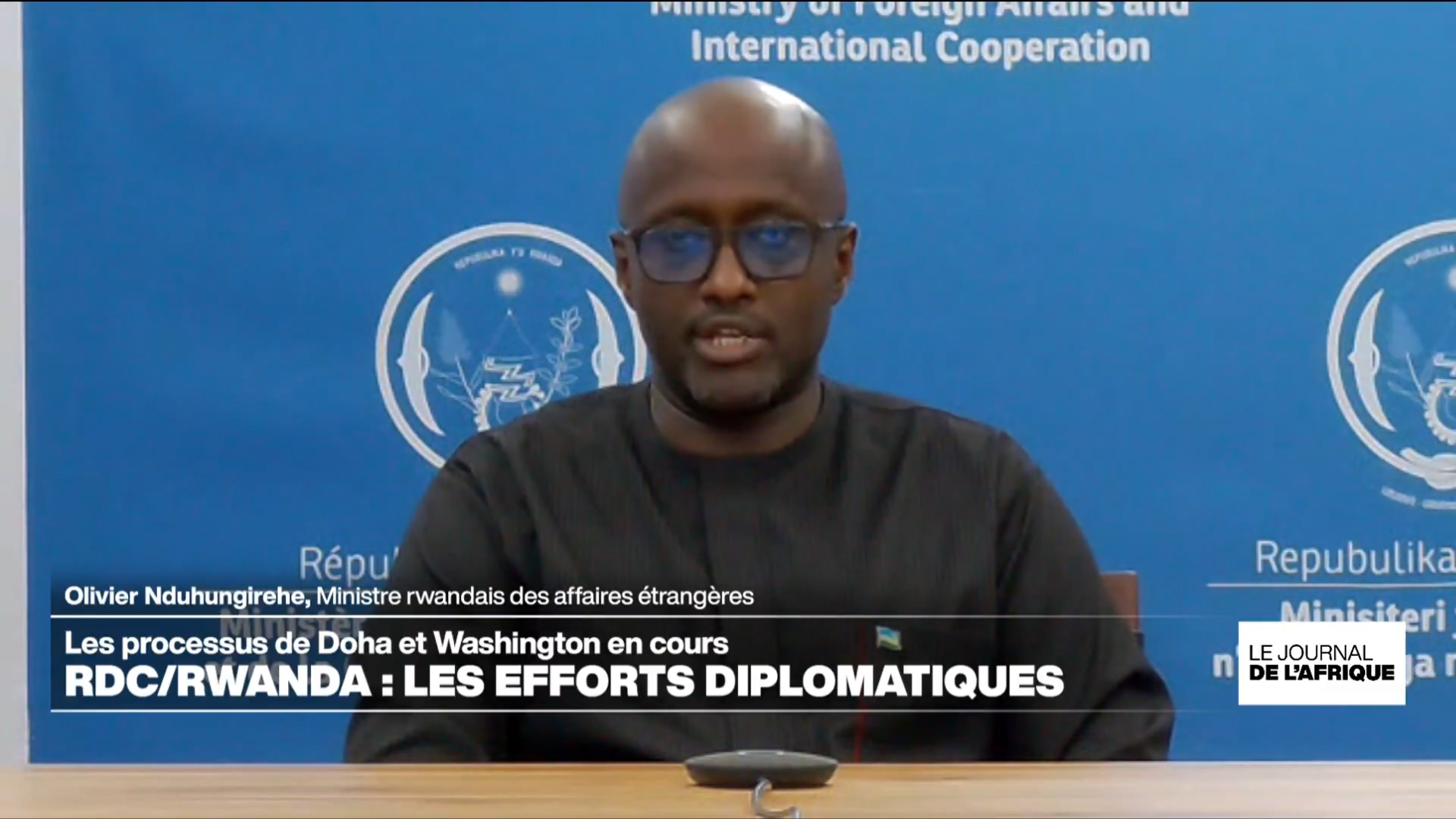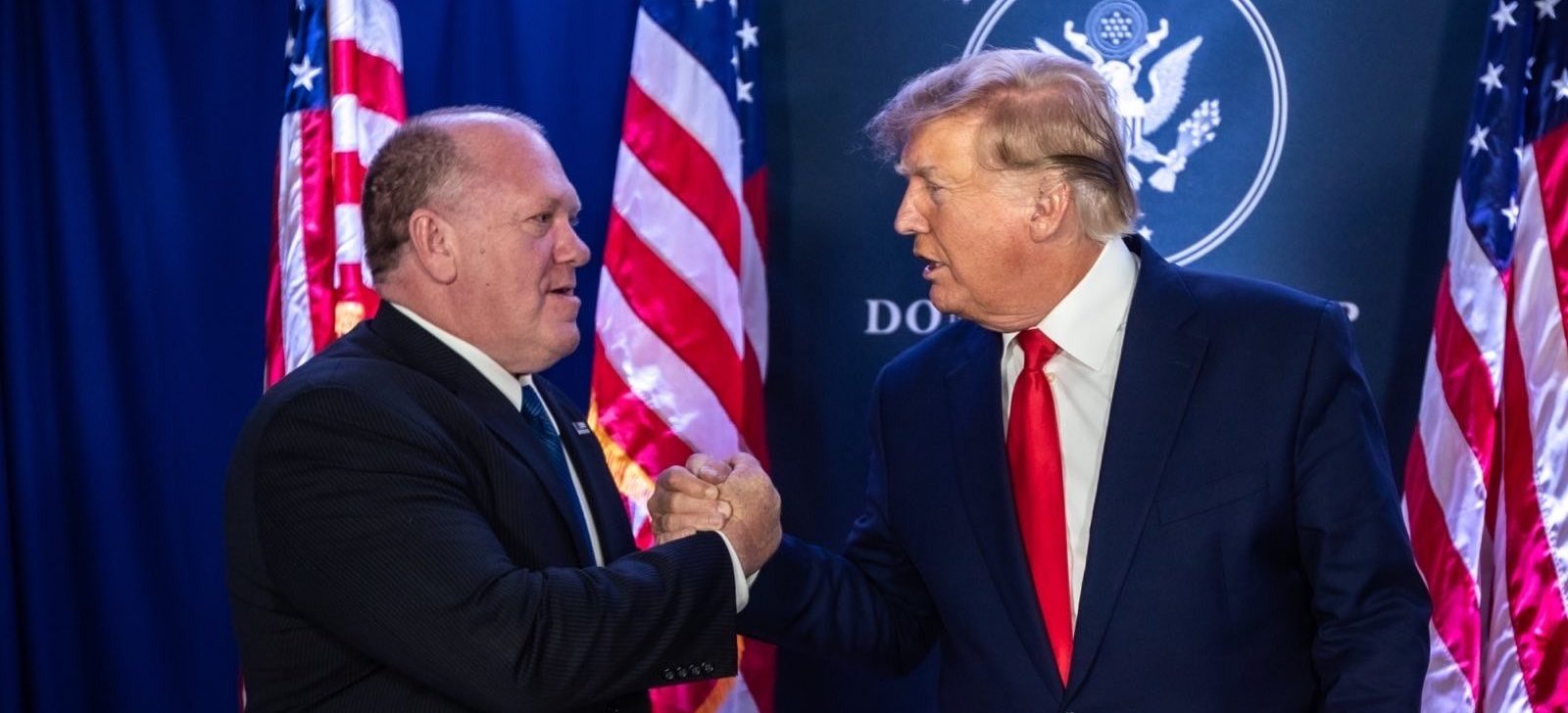Rwandan officials are in talks with the Trump administration to negotiate a deal to accept deported migrants from the United States, Rwanda’s foreign minister said on Sunday.
Rwandan Foreign Minister Olivier Nduhungirehe told state broadcaster Rwanda TV that the Central/Eastern African country “has not yet reached a stage where we can say exactly how things will proceed, but the talks are ongoing … still in the early stages,” according to Reuters.
Secretary of State Marco Rubio mentioned that the administration was “actively searching for other countries to take people from third countries” during a cabinet meeting last week, Fox News reported. And he’s not apologizing for it.
“So we are actively — not just El Salvador — we are working with other countries to say, ‘We want to send you some of the most despicable human beings to your countries, will you do that as a favor to us?’” Rubio said. “And the further away from America the better, so they can’t come back across the border.”
A U.S. State Department spokesperson told Fox News Digital on Monday it is working closely with partners and regional leaders to end the crisis of illegal and mass migration.
President Donald Trump campaigned on securing the border and deporting millions of unvetted illegals who entered under the Biden administration. Trump and other top officials have dedicated various federal resources to tracking down criminal illegal aliens, particularly members of MS-13, Tren de Aragua and other terrorist organizations.
As the Trump administration implements that agenda, the U.S. needs more places to send illegal immigrants, especially those with deportation orders that prevent them from being sent back to their home country.
Case in point: Kilmar Abrego Garcia, the El Salvador national and accused MS-13 gang member who became the Democrats poster child in protest of Trump’s immigration crackdown. Rubio has defended the administration’s decision to deport Abrego Garcia back to his native country of El Salvador even though he had an order to be sent to another country, according to another Fox News Digital report.
Federal and district court judges continue to thwart the Trump administration’s efforts. The Supreme Court in April temporarily blocked Trump’s use of the Alien Enemies Act to swiftly deport Venezuelan migrants it believes are gang members, now deemed as terrorists by Trump.
On Tuesday, a second federal judge, District Court Judge Alvin K. Hellerstein in New York, ruled that Trump is improperly using the 18th century wartime law to try to speed the deportations and barred the administration from removing immigrants under the act.
Hellerstein’s ruling applies in New York City and surrounding areas, where law enforcement officials have targeted arresting TdA members.
“TdA may well be engaged in narcotics trafficking, but that is a criminal matter, not an invasion or predatory incursion,” Hellerstein wrote.
Last week, U.S. District Judge Fernando Rodriguez, Jr., a Trump appointee, issued a similar decision, blocking the administration from further deportations under the Alien Enemies Act of 1798. The Alien Enemies Act applies only when the country is facing an armed, organized attack, Rodriguez ruled.
In recent years, Rwanda has expressed interest in taking migrants that Western countries would like to remove, despite concerns by rights groups that Kigali does not respect some of the most fundamental human rights.
Kigali signed a deal with Britain in 2022 to take in thousands of asylum seekers from the UK before the deal was scrapped last year by then newly elected Prime Minister Keir Starmer, Reuters reported.
Last month the U.S. deported to Rwanda a resettled Iraqi refugee whom it had long tried to extradite in response to Iraqi government claims that he worked for the Islamic State, according to a U.S. official and an internal email.
Fox News reported that Rwandan President Paul Kagame said in February that “President Trump has an unconventional way of doing things,” and “I completely agree with him on many things.”
However, Rwanda has come under fire for human rights violations, so there’s bound to be attempts to block the move. In a 2023 report, the State Department said “significant” issues exist, such as “credible reports of arbitrary or unlawful killings, including extrajudicial killings; harsh and life-threatening prison conditions; arbitrary arrest or detention; political prisoners or detainees; transnational repression against individuals in another country; arbitrary or unlawful interference with privacy,” among other allegations.



